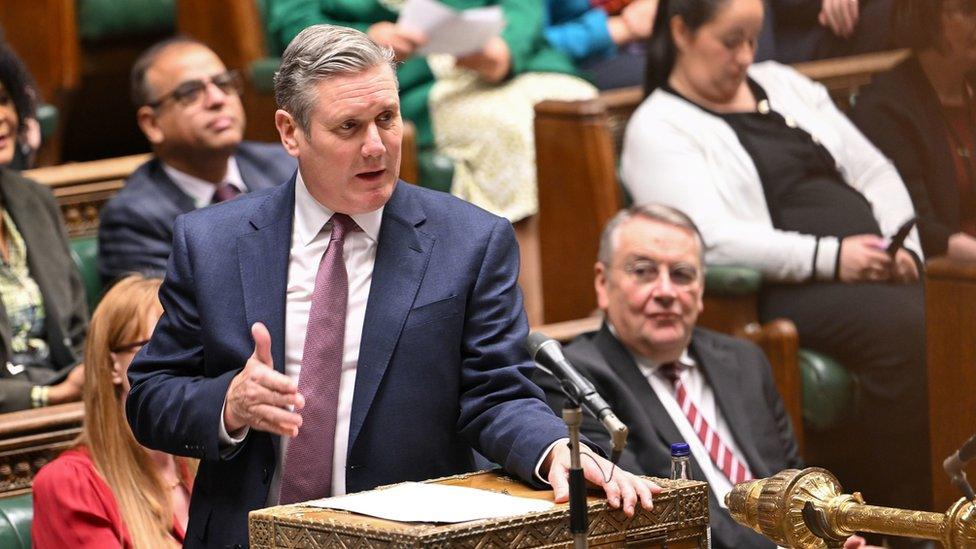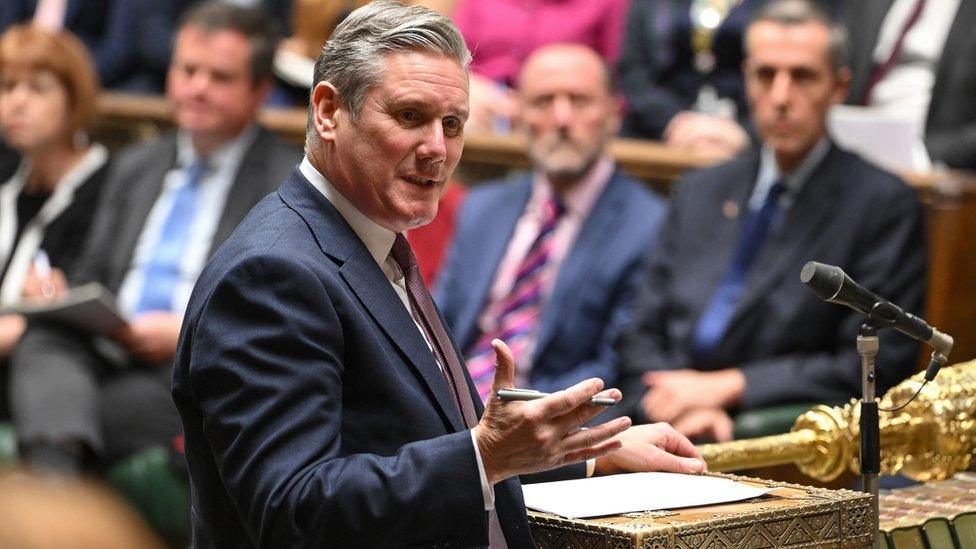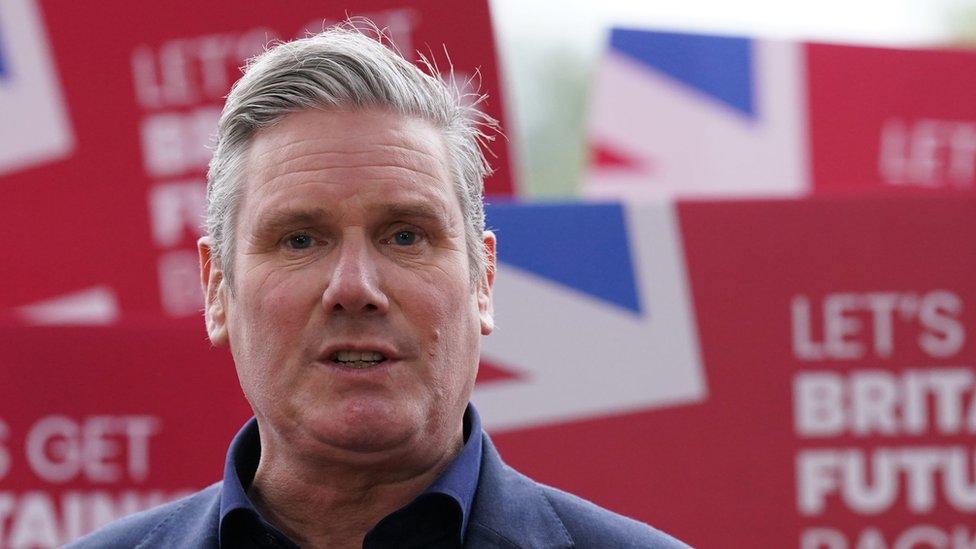Starmer calls for Labour unity after rebellion in Gaza vote
- Published

Sir Keir Starmer has said he wants Labour to be "as united as we can" after a series of frontbench resignations over the Israel-Gaza war.
Ten frontbenchers quit to vote for an SNP motion in the Commons backing a ceasefire, in defiance of Sir Keir's instructions.
He said he was focused on "alleviating the situation on the ground" in Gaza, not "party management".
But he added: "I want us to move forward as united as we can."
There was "absolute unity" across the party about helping people in Gaza, the Labour leader told ITV News.
He said: "You wouldn't expect me to stand here today and say my concern is Labour Party management rather than the hostages and the innocent civilians and children that are dying in Gaza.
"My focus and attention is there, and that's where it is and where it will always be."
Jess Phillips, Afzal Khan and Yasmin Qureshi were among eight shadow ministers who quit their roles to back an amendment to the King's Speech, tabled by the SNP, calling for an immediate ceasefire in Gaza. Two parliamentary aides also voted for it.
A Labour motion, tabled by Sir Keir, backed a pause in the conflict instead, to allow in more humanitarian aid. Both were heavily defeated.
Shadow chancellor Rachel Reeves said it was "disappointing" that Labour MPs had rebelled - but added that those who had left the front bench would be supporting the party from the back benches.
She said Sir Keir "wants to act like a prime minister in waiting and that means aligning ourselves with the international community and taking practical steps to get support into Gaza, whilst also putting pressure on Hamas to release the hostages."
The day after the vote, six Labour councillors in Walsall, including the group leader, resigned from the party over its position on Gaza.
In a letter, they said they felt "betrayed" over the party's stance, adding the leadership had "lost its moral compass".
Since the beginning of the conflict, at least 56 Labour councillors have left the party over the issue.
'Heart and head'
Sir Keir had signalled before the vote that MPs holding a frontbench role would be sacked if they backed the ceasefire call.
At least seven Labour frontbenchers who have publicly supported the idea of a ceasefire did not vote for the SNP amendment and kept their roles.
One of these MPs, Rushanara Ali, the shadow business minister, said she would have resigned, external if it "meant the needle would move in the slightest over forcing a ceasefire".
Ms Phillips, who announced she was quitting her role as shadow domestic violence minister ahead of the vote, told the BBC: "I don't feel like I am rebelling against the Labour Party".
In an interview with Radio WM, she said: "I feel like I am taking a position with my heart, my head and my constituents.
"There is no animosity between me and Keir Starmer. I will work every single day to ensure a Labour victory and, as I said in my resignation letter, I am incredibly proud of the work the Labour Party is proposing to do in government about the thing I care the most about in politics and that is violence against women and girls."
Ceasefire vote
The vote was on an SNP amendment, external to a government motion on its plans for the year ahead, presented in the King's Speech last week.
It called for an end to the "collective punishment of the Palestinian people" and urged "all parties to agree to an immediate ceasefire".
It was defeated by 125 votes to 294, with 56 Labour rebels joining other opposition parties against the Conservatives who opposed it.
There are 29 Labour MPs in the shadow cabinet - none of whom rebelled - but around half of the party's 198 MPs hold some kind of frontbench position, including as whips in charge of party discipline.
Labour, like the Conservative government, the United States and the European Union, is calling for "humanitarian pauses" to help aid reach Gaza.
Compared with a formal ceasefire, these pauses tend to last for short periods of time, sometimes just a few hours.
They are implemented with the aim of providing humanitarian support only, as opposed to achieving long-term political solutions.
Last week, the US said Israel would begin to implement daily four-hour military pauses in areas of northern Gaza.
Related topics
- Published23 May 2024

- Published16 November 2023

- Published27 October 2023
